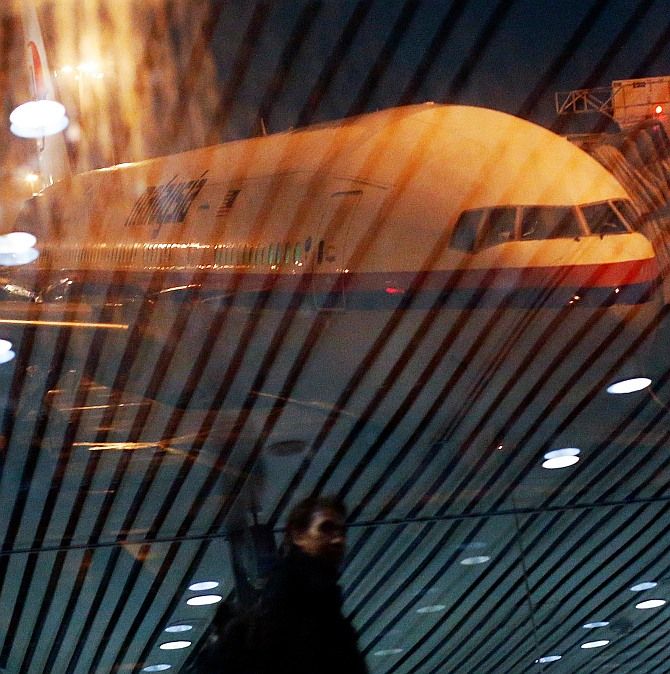 The missing Malaysian plane was ‘highly likely’ to have been on autopilot as it flew over the Indian Ocean, Australian officials on Thursday said, as they decided to focus further south to locate the plane that vanished mysteriously over three months back.
The missing Malaysian plane was ‘highly likely’ to have been on autopilot as it flew over the Indian Ocean, Australian officials on Thursday said, as they decided to focus further south to locate the plane that vanished mysteriously over three months back.
After analysing data between the plane and a satellite, officials believe Flight MH370 was on autopilot before it disappeared along with 239 people, including five Indians, on board on March 8 after taking off from Kuala Lumpur en route to Beijing.
"It is highly, highly likely that the aircraft was on autopilot otherwise it could not have followed the orderly path that has been identified through the satellite sightings," Deputy Prime Minister Warren Truss said.
The mystery surrounding the missing Boeing 777-200 plane continues to baffle aviation and security authorities who have so far not succeeded in tracking the aircraft despite deploying hi-tech radar and other gadgets.
"We are confident that the aircraft was operating on autopilot until it ran out of fuel," Martin Dolan, chief commissioner of the Australian Transport Safety Bureau which is leading the search, said, divulging new details about the jet's fate.
Investigators have reviewed information in order to define a search zone of up to 60,000 square kilometres along the arc in the southern Indian Ocean. Truss said the latest shift in the search area involves the efforts and expertise of specialists from around the world.
He said experts have analysed satellite communications information which was never initially intended to have the capability to track an aircraft and performed extremely complex calculations.
The new priority area is still focused on the seventh arc, where the aircraft last communicated with a satellite. "We are now shifting our attention to an area further south along the arc based on these calculations," Truss said, adding that the new area is around 1,800 kms west of Perth.
He said he was optimistic that "this site is the best available and most likely place where the aircraft is resting." He said the search continues with a bathymetric survey or mapping of the ocean floor in the search area, to be followed by a comprehensive search of the sea floor.
He said the search continues with a bathymetric survey or mapping of the ocean floor in the search area, to be followed by a comprehensive search of the sea floor.
The bathymetric survey has already begun, with Chinese ship Zhu Kezhen and Australian-contracted vessel Fugro Equator conducting operations in the areas provided by the Australian Transport Safety Bureau, Truss said.
It will take around three months to complete the survey. The underwater search should begin in August and take up to 12 months to complete. Malaysia believes the plane was deliberately diverted by someone on board and that satellite data indicates it crashed in the Indian Ocean.
Investigators, including the Federal Bureau of Investigation, are looking into a range of aspects, including hijack, sabotage, personal and psychological problems, that may have caused the incident.
Australia has been coordinating the search for the plane in consultation with China, from where two-thirds of the passengers came, and Malaysia. Malaysia and Australia are developing a Memorandum of Understanding to determine the areas of cooperation in the search and recovery activities, including financial arrangements.
Malaysia will shortly be announcing the details of the contracted assets that may be deployed as Malaysian government furnished equipment for use in both the bathymetric survey and the search of the sea floor.
Survey equipment that has been identified so far includes towed side scan sonar, a multi-beam echo sounder and a sub bottom profiler. Australia, Malaysia and China have reaffirmed their commitment to continue to search for MH370 and to keep families informed of developments.











 © 2025
© 2025